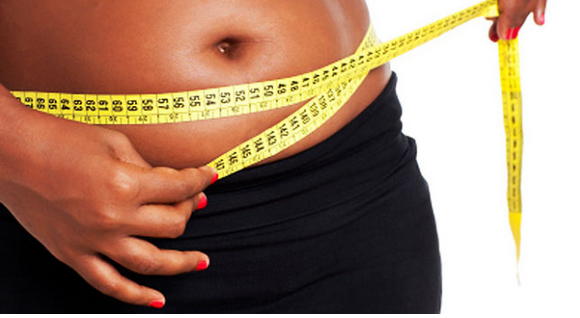
“The hardest thing I’ve ever been through.” “The most important decision of my life.” “My life’s work.”
Memoir surfing the other day I came across these three declarations in a book written by a female scientist who is a rising star in her field. If you’ve read a memoir then the fact that it contained these three phrases will not surprise you one bit – if you get to the end of your life and can’t say these things about something then you either played too many video games or are Schrödinger’s cat (although in the case of the former I know a lot of World of Warcraft players who would invoke them). So why was I so shocked to read them?
They were all describing the woman’s 100-lb weight loss.
Now, I’m not saying that losing 100 pounds isn’t significant. It’s a huge accomplishment, life-changing, and frankly quite impressive, especially since she did it by giving up all flours, sugars, processed foods and anything else that she found addicting — cold turkey. She’s kept the weight off for over ten years.
But this is also a woman who was left by her father at a young age, had to take care of an alcoholic mother and was homeless for a large part of her childhood. And yet weight loss is the “hardest thing” she’s ever been through? At some point she had to decide whom to marry, what to major in and whether or not to cut ties with her dysfunctional mom. And yet deciding to go on her radical diet was the “most important decision” of her life? This incredible lady also earned two PhD.s in a field almost exclusively dominated by men at a very young age and has already made significant advances in her science. And yet losing weight and keeping it off is her “life’s work”?
Like I said, I’m not knocking her story at all. In fact, I believe her 100%. One one level, choosing to get healthy – and she was morbidly obese as a teen – would change everything else. You can’t conduct research very effectively if you’re having a heart attack or falling into a diabetic coma. But on another level, this is the world we live in:
Over the past few days Tracy “tiny dancer” Anderson, who is famous first and foremost for being tiny and also for training Gwyneth Paltrow, Madonna, and others to be tiny through her time-intensive system of dance cardio and Pilates-esque strength moves, has garnered more attention for — what else? — deriding people who can’t lose weight. Specifically by calling out new moms who don’t lose their baby weight in 6 weeks like she did. In an interview with Du Jour magazine she said,
“A lot of women use pregnancy as an excuse to let their bodies go, and that’s the worst thing,” Anderson told DuJour magazine in their September issue, while revealing how she lost the weight within six weeks after having daughter, Penelope, in May.
“I’ve seen so many women who come to me right after (having children) with disaster bodies that have gone through hell, or they come to me years later and say, ‘Oh, my body is like this because I had three kids.’ ”
See? There’s the superlative problem again – is gaining weight (even a lot of it) “letting their bodies go”? (Go where exactly? To the happy land where women don’t care about weight and can eat what they what?) And is gaining weight while pregnant (even a lot of it) really “the WORST thing”? The public outcry has been immense. New moms, a group who already largely feels attacked by everyone from their mother-in-law to their own hormones, understandably have been the most upset. And as a mom who’s body was basically declared a disaster zone after “going through hell” to birth five kids I can understand their anger. She’s one stupid woman but she’s only reiterating what we’re told all the time from so many sources: that the shape of your body defines you as a human being. That’s not new. It’s not news either. It’s just really sad.

I tried The Tracy Anderson method — controversial for her admonition that “no woman should ever lift more than 3 pounds” if she wants to build “long, lean muscles” — for a Great Fitness Experiment and was honestly surprised by how challenging it is. Three pounds may be the tiniest pinkest dumbbell you’ve ever seen but do 200 shoulder raises with them and you’ll want to gnaw your own shoulder off to stop the pain. Unfortunately to do the number of reps (200 is a favorite of hers) and sets she requires your workout can easily top three hours a day. What new mom has time for that? Celebrity moms, apparently. Sure we all have to do the same work to lose the weight – and I’m not denying Anderson works hard for her body – but to chastise someone who doesn’t have the same resources as you for not making the same decisions as you is just ridiculous.
The whole conversation reminded me of a recent interview I did for Shape with PJ James, the Australian personal trainer who became famous a few years ago for trading in his glamorous life as an underwear model to gain – and then lose – over half his body weight in an effort to better understand what his overweight clients were going through. Why would someone who is literally living the dream – he walked for Gucci and Armani! In his skivvies! – trade all that in to do something as mundane as gaining and losing weight? Because, as demonstrated by the scientist above, it’s one of the great narratives of our time. Dieting is a near-universal experience for first world people.
And as James told me, “Trainers should go to some degree to experience what their clients have. Go through the process, look in the mirror, feel that sense of shame: it forces you to think about how others feel.” He concluded by telling me his favorite word now is “empathy.” Me too, PJ.
Both Anderson and James started out in similar positions as members of the Pretty People Elite club and both now currently have careers helping other people with their health and fitness. But both have remarkably different vantage points which is why I think they’ve had hugely different results. Anderson is not only being publicly villified but also sued for making false claims and financial shenanigans. James is still working quietly as a trainer in Australia but boasts a 90% success rate with helping his clients achieve their goals. It takes a strong person to walk in someone else’s shoes instead of judging them.
What would you say about the magnitude given to the accomplishment of weight loss in our society? Is it truly the “hardest” “most difficult” and “best” thing a person can do in their life? What do you think about Anderson’s statement?




I think losing weight is difficult. Hands down. I also think for the talented scientist maybe she is looking at sustained weight loss as the most difficult thing to maintain and thus having maintained it for 10 years it seems to be her greatest accomplishment. I am not knocking down research but if you are gifted mentally then it is not as hard. Plus once the research is complete it is done. With weight loss, especially of 100lbs to keep it off is a daily conscious decision. You are never quite done with it I suppose.
Who wrote that memoir? You referred to it and even quoted it but neglected to cite it at all. Is that even allowed? Also, I agree with Ange B. As a scientist-in-training, weight loss is infinitely more difficult that anything I’ve had to do academically. 95% of diets fail, weight regained plus interest.